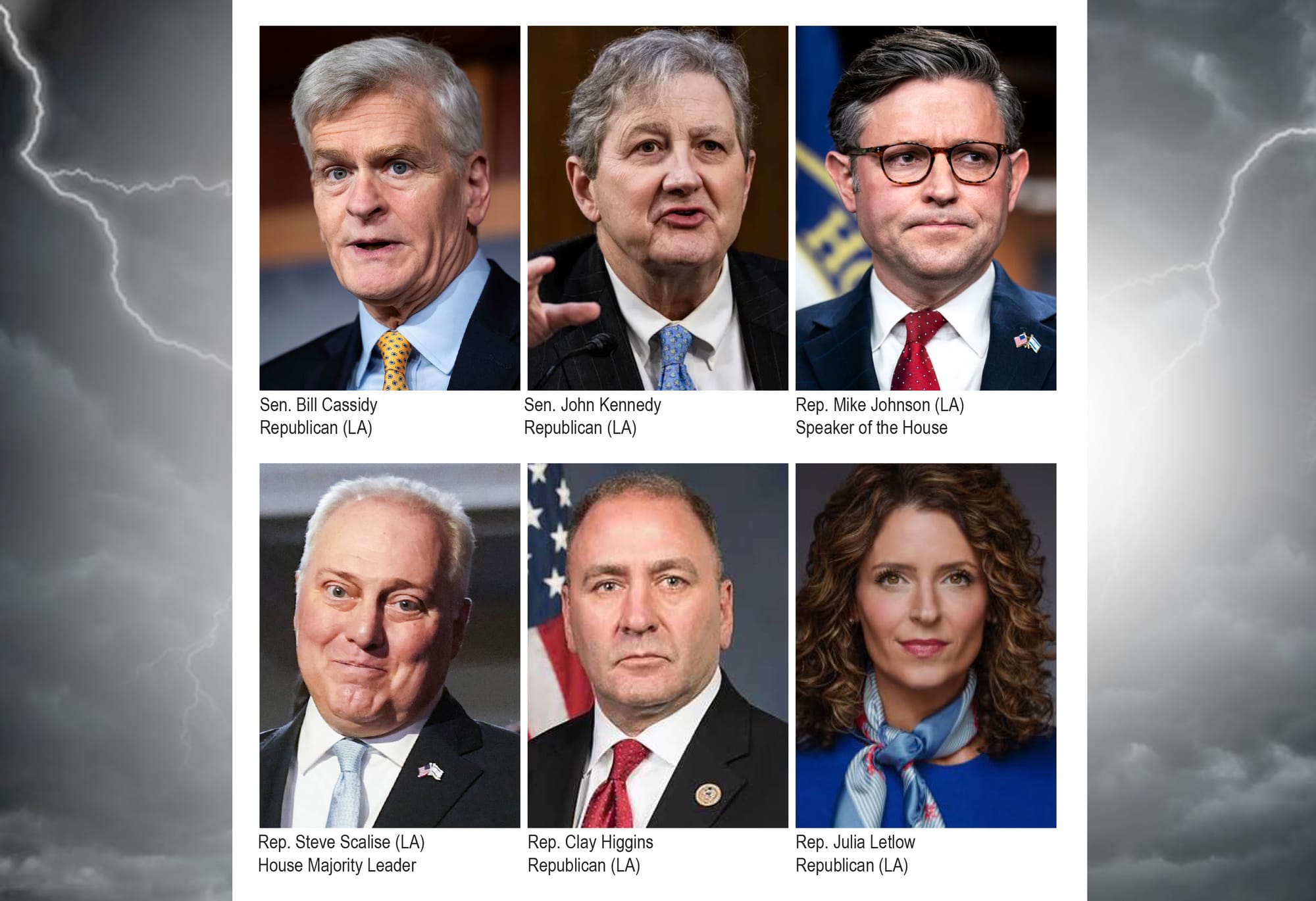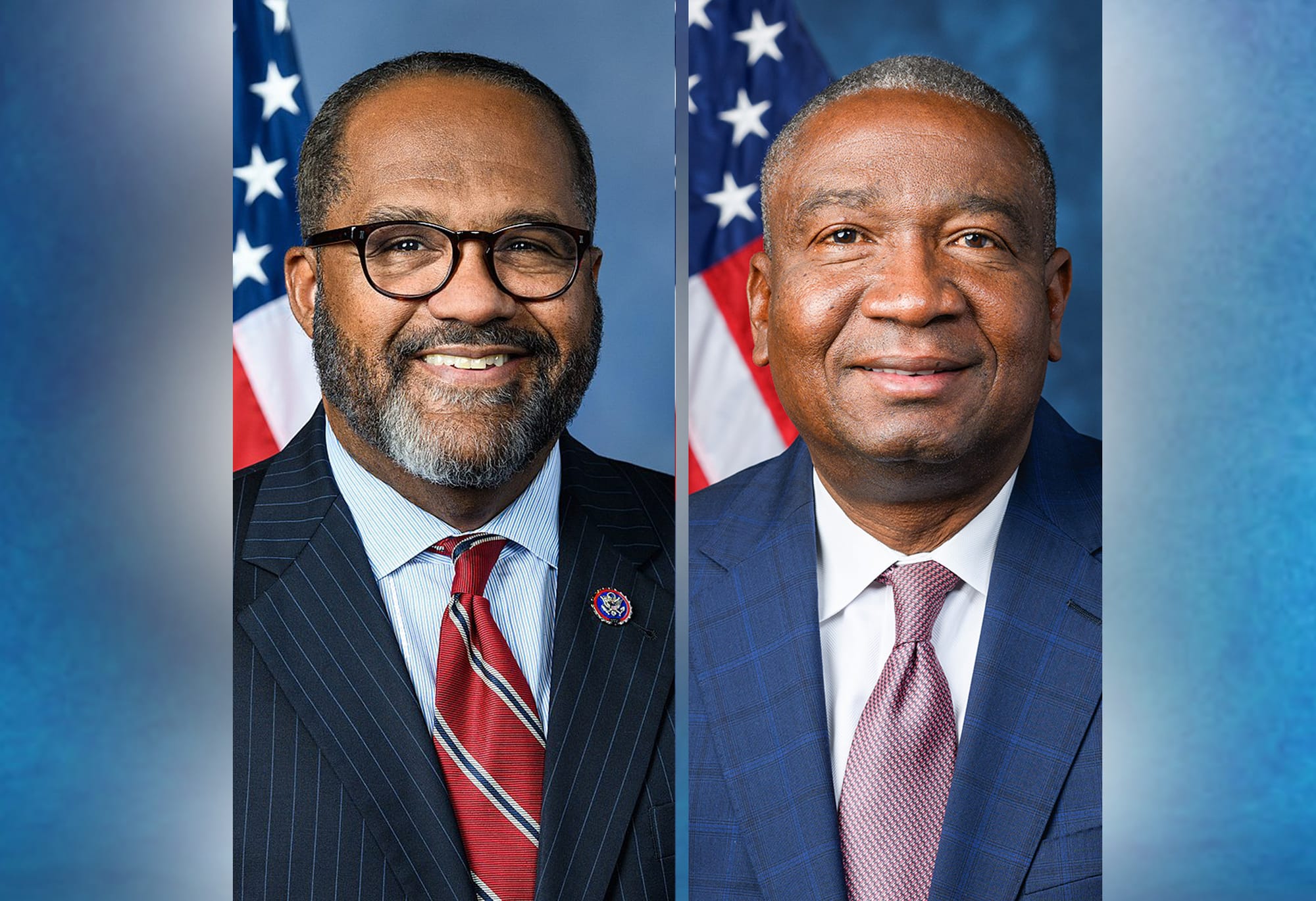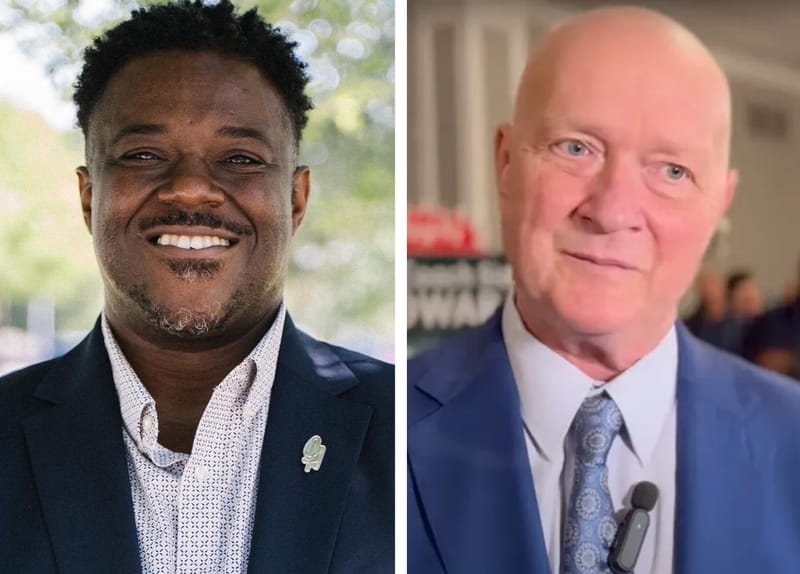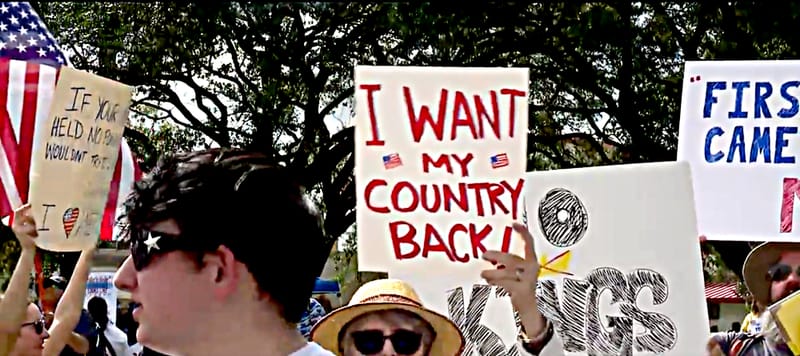Louisiana Republicans United Behind Federal Bill That Strips Lifelines from Black, White, and Rural Families Alike
Only Reps. Troy Carter and Cleo Fields opposed the “Big Beautiful Bill,” casting rare votes to protect Louisiana’s most vulnerable.
BATON ROUGE, La.— The so-called “Big Beautiful Bill,” passed and signed into law on July 4, has launched what critics describe as the largest federally sanctioned disinvestment in Louisiana’s working-class and vulnerable populations in a generation. Backed by every Republican member of Louisiana’s congressional delegation, the legislation guts food assistance, tightens Medicaid access, shifts public school funding into private systems, and rolls back environmental and infrastructure protections — all under the banner of government reform.
But in a state where poverty, illness, and underfunded schools are daily realities, the consequences are tangible, widespread, and inescapably human.

Who Voted for It — and Who Didn’t
All Republican members of Louisiana’s federal delegation voted for the bill:
- Sen. Bill Cassidy
- Sen. John Kennedy
- Rep. Mike Johnson (LA-04) – Speaker of the House
- Rep. Steve Scalise (LA-01) – House Majority Leader
- Rep. Clay Higgins (LA-03)
- Rep. Julia Letlow (LA-05)

They were joined in silence or support by Governor Jeff Landry, who declined to speak against the bill and has made no moves to request federal protections or transition support for Louisiana residents.

Only two Louisiana lawmakers opposed the bill:
- Rep. Troy Carter (D-LA-02)
- Rep. Cleo Fields (D-LA-06)
SNAP Cuts Impact All Communities
More than 828,000 Louisiana residents rely on SNAP (food stamps). The bill now imposes lifetime caps and strict work requirements, disqualifying thousands — including disabled adults, single parents, and low-wage workers.
In rural white-majority parishes like Allen, Vernon, and West Feliciana, food pantries report a surge in need. In urban Black-majority neighborhoods in Baton Rouge, New Orleans, and Shreveport, families are skipping meals to keep the lights on.
Medicaid Cuts Threaten Rural and Urban Health
1.8 million Louisianans — nearly 40% of the population — are enrolled in Medicaid. The bill replaces guaranteed federal funding with capped block grants, meaning services must now be rationed.
In Alexandria, Monroe, and Natchitoches, patients face reduced hours, clinic closures, and long waitlists. In St. Helena and Morehouse parishes, elderly residents on oxygen and heart medication are being turned away unless they can pay out of pocket.
Hospitals in Washington, Avoyelles, and Caldwell parishes are preparing for layoffs or closures.
Public School Funding Shifted to Private Hands
Louisiana public schools, already ranked among the worst in the nation, are now expected to lose millions. The bill diverts federal dollars toward private vouchers and charter networks, draining public school districts in both urban centers and rural parishes.
Educators in Caddo, Tangipahoa, and St. Mary parishes report that students may face class sizes of 40 to 1, reduced special education services, and canceled school meal programs.
Deregulation Endangers Black and White Communities
The law also weakens EPA oversight, removing protections for communities already burdened by pollution.
In “Cancer Alley,” which stretches along the Mississippi River and is home to many Black families, asthma and cancer rates are expected to climb. In Calcasieu and Cameron parishes, white communities near refineries now face increased flood risk and chemical exposure, with little federal recourse.
Infrastructure and Media Funding Slashed
Louisiana's crumbling roads, aging water systems, and limited broadband access will go largely unaddressed. The bill cuts funding to rural infrastructure in favor of private partnerships — leaving places like Franklin, Tensas, and Claiborne further isolated.
Meanwhile, Black-owned and local newspapers, such as those serving East Baton Rouge and Rapides parishes, are losing public communication grants, threatening their survival and silencing the only media voices covering these communities.
The St. George Split Mirrors National Policy
Locally, the formation of the City of St. George in East Baton Rouge Parish reflects the same values baked into the federal legislation. With state Republican support, voters in a wealthy, white area broke away from Baton Rouge to form their own city — effectively pulling millions in tax revenue away from schools and public services that serve a larger, majority-Black population.
This mirrors what the Big Beautiful Bill does on a national level: isolate the privileged, abandon the rest.
Who Is Being Hurt: By the Numbers
Here is a demographic breakdown of who stands to suffer the most under the new law:
| Group | Percent of LA Population | People Affected | Key Impacts |
|---|---|---|---|
| Black families in urban centers | 31% | ~1,426,000 | SNAP loss, school defunding, environmental deregulation |
| White rural working-class families | 40% | ~1,840,000 | Medicaid cuts, school closures, food insecurity |
| Seniors | 17% | ~782,000 | Healthcare access, SNAP reductions, fixed income instability |
| Veterans | 6% | ~276,000 | Threats to VA services, rural clinics closure |
| Children | 23% | ~1,058,000 | School meal cuts, overcrowded classrooms, lower outcomes |
| Farmers and fishermen | 5% | ~230,000 | Loss of subsidies, deregulation, tariff instability |
| Single mothers (all races) | 13% | ~598,000 | Food insecurity, housing instability, childcare unaffordability |
Together, these groups make up more than 90% of Louisiana’s population — families that are now being asked to bear the burden of a bill that gave nothing back in return.
A Coordinated Agenda of Abandonment
From Congress to the Governor’s Mansion to local city councils, Republican leadership in Louisiana has moved in lockstep with a national agenda that favors deregulation, privatization, and public disinvestment.
Gov. Jeff Landry and key Republican state legislators supported or echoed many of the Big Beautiful Bill's provisions at the state level — tightening public assistance, boosting charter expansion, and promoting local autonomy efforts like St. George.
Their collective silence on the consequences now unfolding is not accidental — it is policy by design.
The Deficit Grew Anyway
Despite claims that the Big Beautiful Bill would reduce federal spending and shrink the national deficit, recent data from the Congressional Budget Office shows that the deficit has actually increased since its passage. The legislation cut social spending but included massive tax breaks for corporations and top earners, resulting in higher long-term borrowing.
This means Louisiana residents not only lost benefits, but will carry the cost of rising federal debt — without the public services those dollars once funded.
Final Word: A Crisis of Leadership, A Call for Accountability
This is not just a partisan dispute. It is a humanitarian issue. Millions of Louisiana residents — Black and white, urban and rural, young and old — are being left behind. And those responsible are not nameless or far away. Their votes are recorded. Their names are known.
As communities brace for layoffs, school closures, hunger, and displacement, one truth remains:
The people of Louisiana were not protected. They were politically sacrificed.







